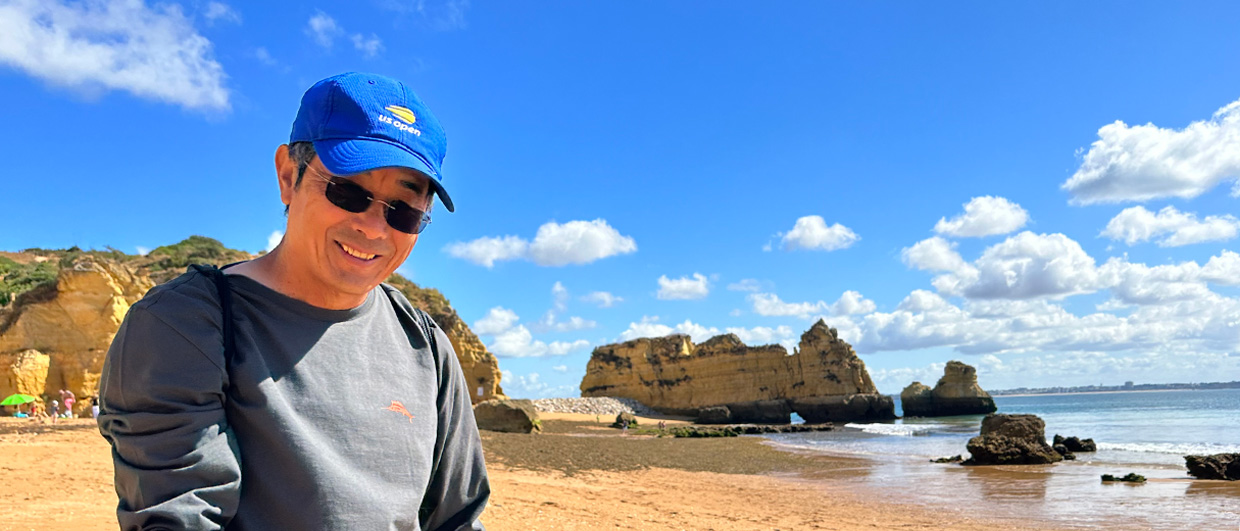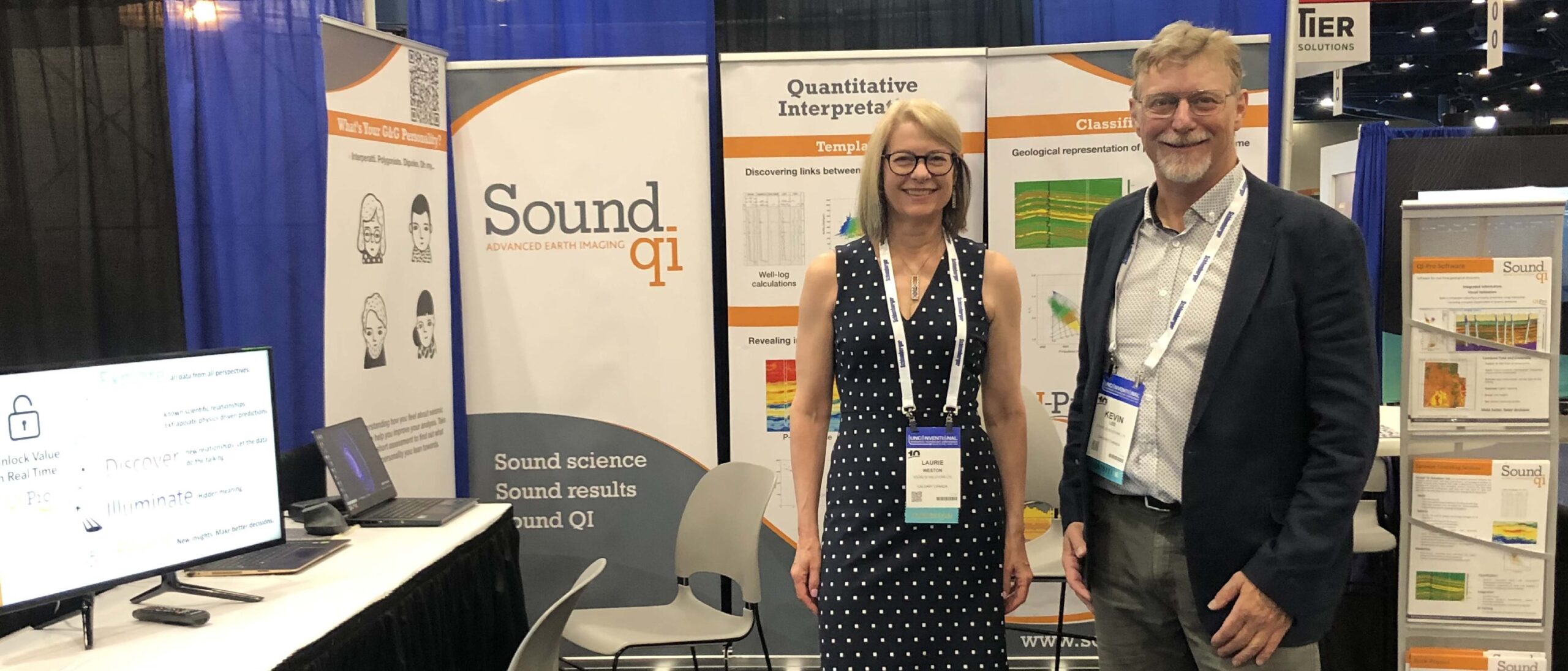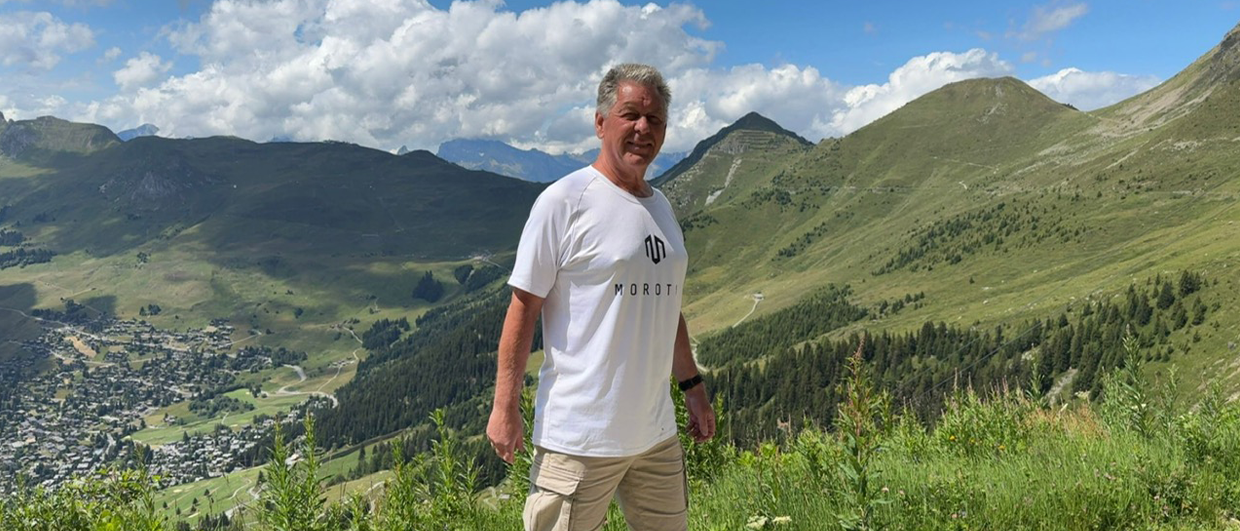“I’m so pleased to be able to organise in-person meetings again”, says Helena Dobrova. “Soon, we will host our 56th event in Poland.” Helena can easily be ranked as one of the best networkers in the European upstream energy business. She is the Executive Chairwoman of the Continental Europe Energy Council (CEEC) and has a long history in the European energy intelligence sector too.
Here, she talks about her academic career in Prague, how she scouted for subsurface data in Central and Eastern Europe for Geneva-based intelligence business Petroconsultants, and finally how she established the CEEC in 1994.
Little did I know how this “decision” determined the rest of my career, as I took up natural sciences instead. And now, looking back, I think that the regime did me a favour!
Life on the other side
“Our lives were good, but within strict limits”, says Helena when we start our conversation about her life in Prague where she was born and raised. It was the time of the great divide in Europe, with the Central and Eastern European countries locked behind the Iron Curtain. “Probably the worst for us as young students was that we couldn’t travel freely”, she adds.
The communist party exerted strong control over decisions in people’s lives. “For instance, I was told to give up my ambition to study languages, what I had preferred at the time”, Helena says. “Knowing foreign languages was considered a threat to the regime. Little did I know how this “decision” determined the rest of my career, as I took up natural sciences instead. And now, looking back, I think that the regime did me a favour! My interest in languages; I now speak seven and understand another seven, has been of great advantage for my future job in the oil business”, she adds.
Helena studied engineering geology, hydrogeology and applied geophysics at Charles University in Prague, where she also got her Doctorate in natural sciences. Afterwards, she worked on hydrogeological and geotechnical projects for the local industry until the fall of the Iron Curtain in 1989, when everything changed.
Sheer coincidence
“After the political changes, companies, universities and institutions in the West were offering grants and work opportunities to people in the “liberated” Central European countries”, Helena continues. Initially, her plan was to move to Spain, where she did a part of her Doctorate at the Universidad Politécnica de Minas in Madrid. However, things then took a different turn.
“It was a sheer coincidence that I ended up in Geneva”, she continues. “A university friend had a connection in Geneva who wanted to speak to him about a position. But, as he already had another job in the US, he asked me to meet that person even though I was not really interested. This person turned out to be Bogdan Popescu, a VP of Petroconsultants who was responsible for foreign scouting. Shortly after, another Petroconsultants VP, Hans Oesterle, visited me in Prague and the rest is history. I was initially planning to stay for only a couple of years, but now here I am in Geneva, many years later!”
…the business needed someone, preferably a geologist speaking languages and able to easily make contacts, to start scouting for data in an area nobody had been able to look at for decades.
Why was a subsurface intelligence company like Petroconsultants interested in hiring someone from Prague? Simple, because the business needed someone, preferably a geologist speaking languages and able to easily make contacts, to start scouting for data in an area nobody had been able to look at for decades. “I was from that region and understood the culture. It was certainly a special time”, Helena recalls. “There was no data available from Central and Eastern Europe. We started from scratch.”
“Throughout the years, we created a pretty good database and maps that, as we were told, were better than those issued by the countries themselves. Some people may still remember that Petroconsultants maps were highly appreciated in the oil industry all over the world.”
From her early days at Petroconsultants, Helena remembers with a certain nostalgia her discussions with Harry Wassall, who founded the company back in 1956 in Cuba while he was working there as an oil geologist for Gulf Oil. “I actually spent a few years in Cuba when I was a kid, so we had something to talk about. It was thanks to my Spanish that I was also responsible for some Latin American countries for a couple of years too.”

A growing network
Helena slowly built up a network of contacts and correspondents in the various countries in Central and Eastern Europe. “It was quite laborious, as any information related to the petroleum industry was regarded as highly confidential by the national oil companies. And the landscape was heavily dominated by national oil companies at the time”, she explains.
“It took a lot of effort and time to sign DEAs (data exchange agreements) and generally we had to wait until the NOCs were privatised until this became easier”, Helena continues. “Important sources of information were government authorities responsible for licensing and data. But again, getting a cooperation agreement with them was particularly tough. On top of that, it is important to remember that all these relationships required careful maintenance and could also cease to exist at any given time”, Helena explains. “With a change of a government or a company management, which happened frequently, the negotiation started all over again”, she adds.
“When it comes to getting hold of data, Romania was and still is probably the biggest challenge of all the countries in Europe”, Helena continues, “to a point where even the respective authorities were not sure where the original data resided.”
However, there were challenges to get hold of data in Western Europe too. “Accessing subsurface data in a country like Germany is still very difficult, mainly due to the fact that it is held by the individual states but also because of the complex licensing system.”
Easy oil and gas?
When Central and Eastern Europe opened up in the early 1990’s, oil companies from the West hoped that there were reserves left that could be discovered with modern technology. Many big companies including majors applied for acreage in countries such as Albania, Bulgaria, Hungary and Romania, only to find out a few years later with a lot of exploration money spent that it was not the case. “This led to an exodus of foreign companies from Central Europe for quite a while”, Helena recalls.
The shale gas boom that started in the mid 2000’s led to another huge wave of interest from international players, but now looking for other parts of the geology. Especially Poland saw a swath of big companies coming in such as ExxonMobil, Chevron, Marathon, ConocoPhillips and also Talisman, BNK and San Leon. However, similar to the rush in the early 1990s, the initial interest in shale gas soon dissipated.
“This was partly because of serious civil unrest against shale gas operations in many Central European countries”, Helena says. “And there was of course another good reason; the expected resources were not there or were not as big as initially anticipated”, she adds.
The mood in energy companies in this part of Europe is a bit more upbeat than what I see elsewhere..
Still a place for the industry
“That’s not to say that there is nothing left to be found in Central and Eastern Europe”, Helena stresses. “There was a lot of licensing and E&P activity in Ukraine before the start of the war. It is a matter of time until that resumes”, she says. “The Black Sea is another example of an area of activity, with discoveries not only in Turkish waters but also in the Romanian sector.”
“The mood in energy companies in this part of Europe is a bit more upbeat than what I see elsewhere”, adds Helena. “The general feeling is that oil and gas will be part of the energy mix for the foreseeable future, as there will not be a good transition without energy security.”
“And, even though the dependency on oil and gas imports for Europe as a whole will unlikely disappear as a result of major discoveries, for smaller and mid-size independents, niche as well as regional players, Central and Eastern Europe is still an attractive place to invest”, continuous Helena. “Favourable legislation, good infrastructure, a big market on the doorstep and a relatively safe environment are the reasons why this area is still attractive for many companies.”
It was not easy at the beginning, as communication was very limited because of the completely different approach to data exchange. Instead of networking, the “Easterners” went shopping and the “Westerners” went to drink beer.
CEEC Scout Group
“In my early Petroconsultants days”, remembers Helena, “when we had almost no information from the Central European region, my VP Bogdan Popescu had the bright idea to set up a local scout group that would bring Central European and Western companies together. And so we did, back in 1994, with eight founding members.”
Until today, it is mainly the people working for the oil and gas operating companies and the associated upstream service sector who form the backbone of the scout group, which changed its name from Central Eastern Europe and Caspian Scout Group to the Continental Europe Energy Council. “But we also welcome representatives from NOCs, licensing authorities, investors and academia, gathering the entire energy-related “society” in Central Europe in one place”, Helena stresses.
“It was not easy at the beginning, as communication was very limited because of the completely different approach to data exchange. Instead of networking, the “Easterners” went shopping and the “Westerners” went to drink beer”, says Helena with a smile.
“Over the years, we have developed into a solid group that has clearly demonstrated its importance for the energy industry in Europe. We have expanded regionally to cover all of continental Europe and the scope of our activities now also includes geothermal energy, hydrogen and CCS.”
In 1998 and 1999, when the oil price fell dramatically, Helena feared that the group might cease to exist. Now, almost 25 years later, the organisation she is heading is preparing its 56th event in Torun, Poland in May.
Helena fully admits that the CEEC is an important part of her life. “Building relationships, facilitating networking and business discussions, and bringing all kinds of professionals in the energy business together continue to drive her. “When an executive of a US company once told me that he had never seen so many deals sealed at the bar, I knew that what I was doing made sense!”





